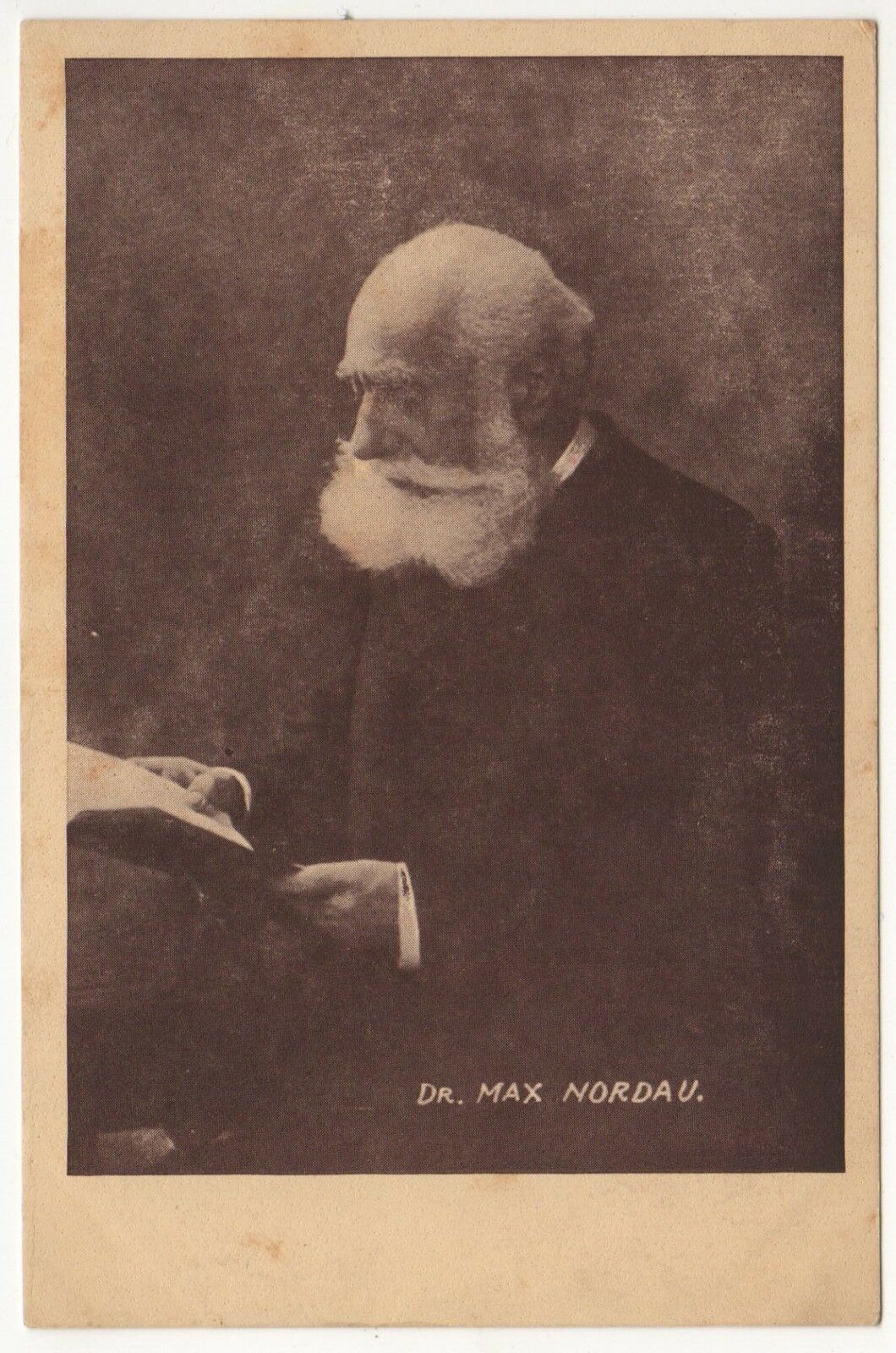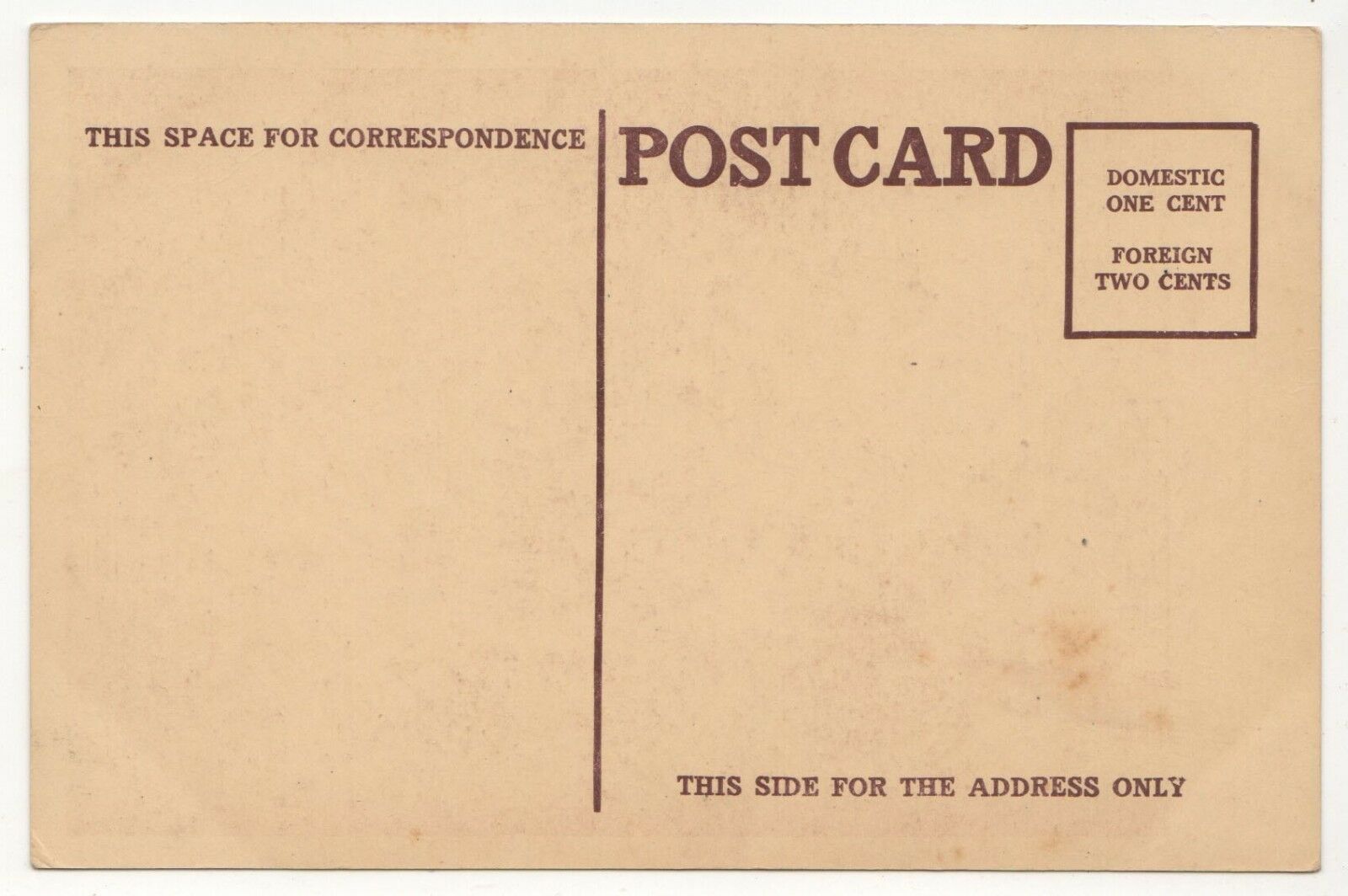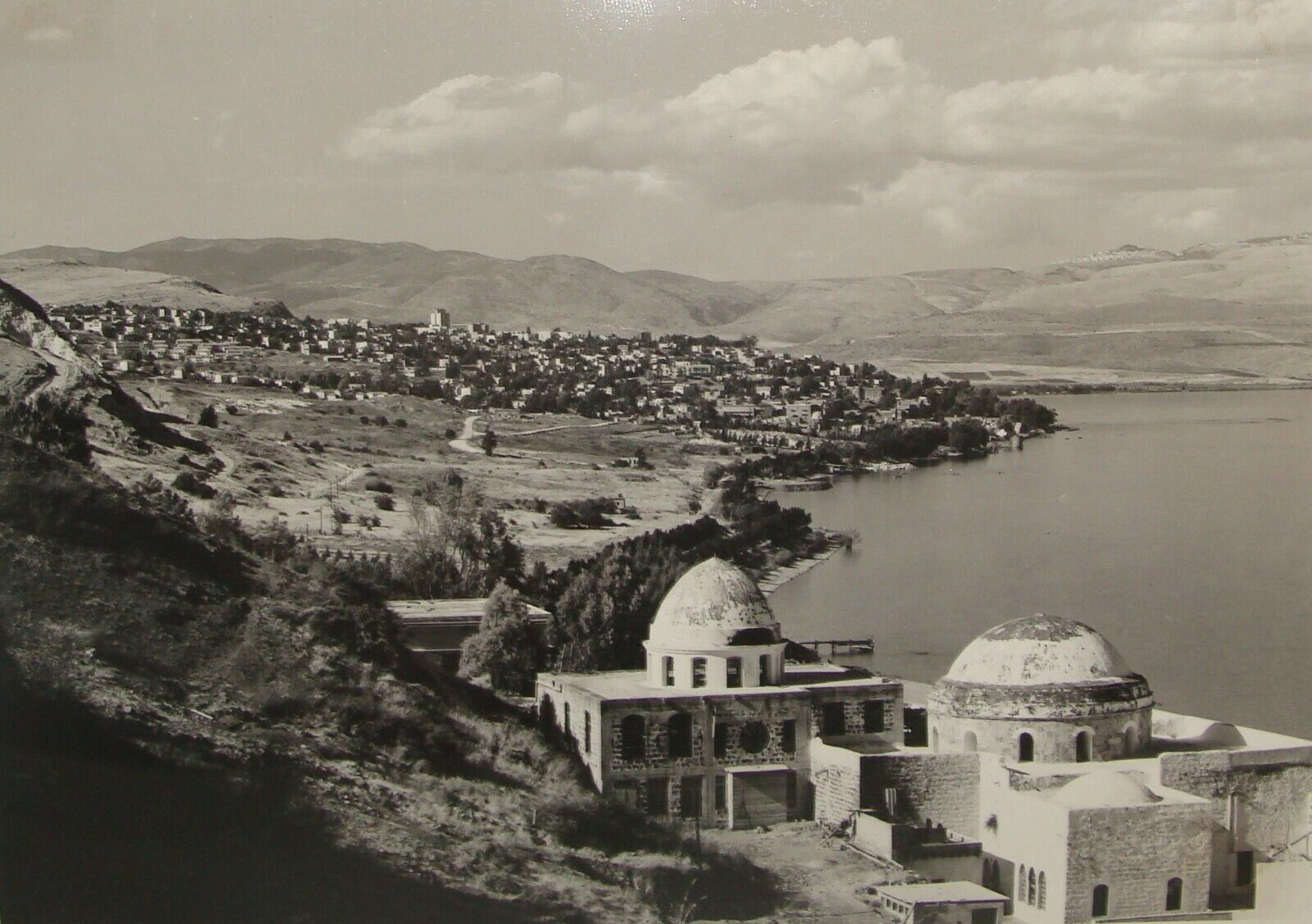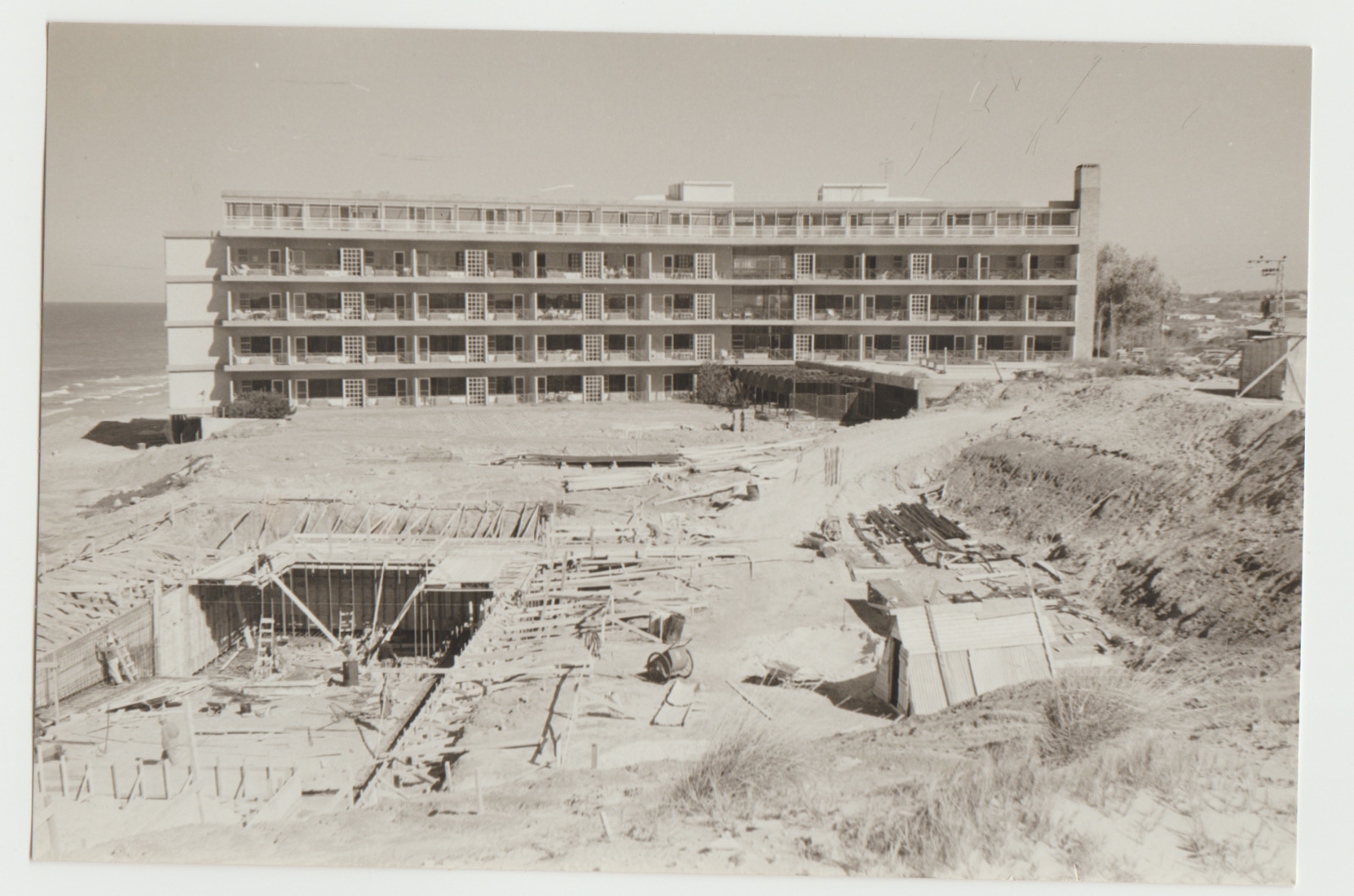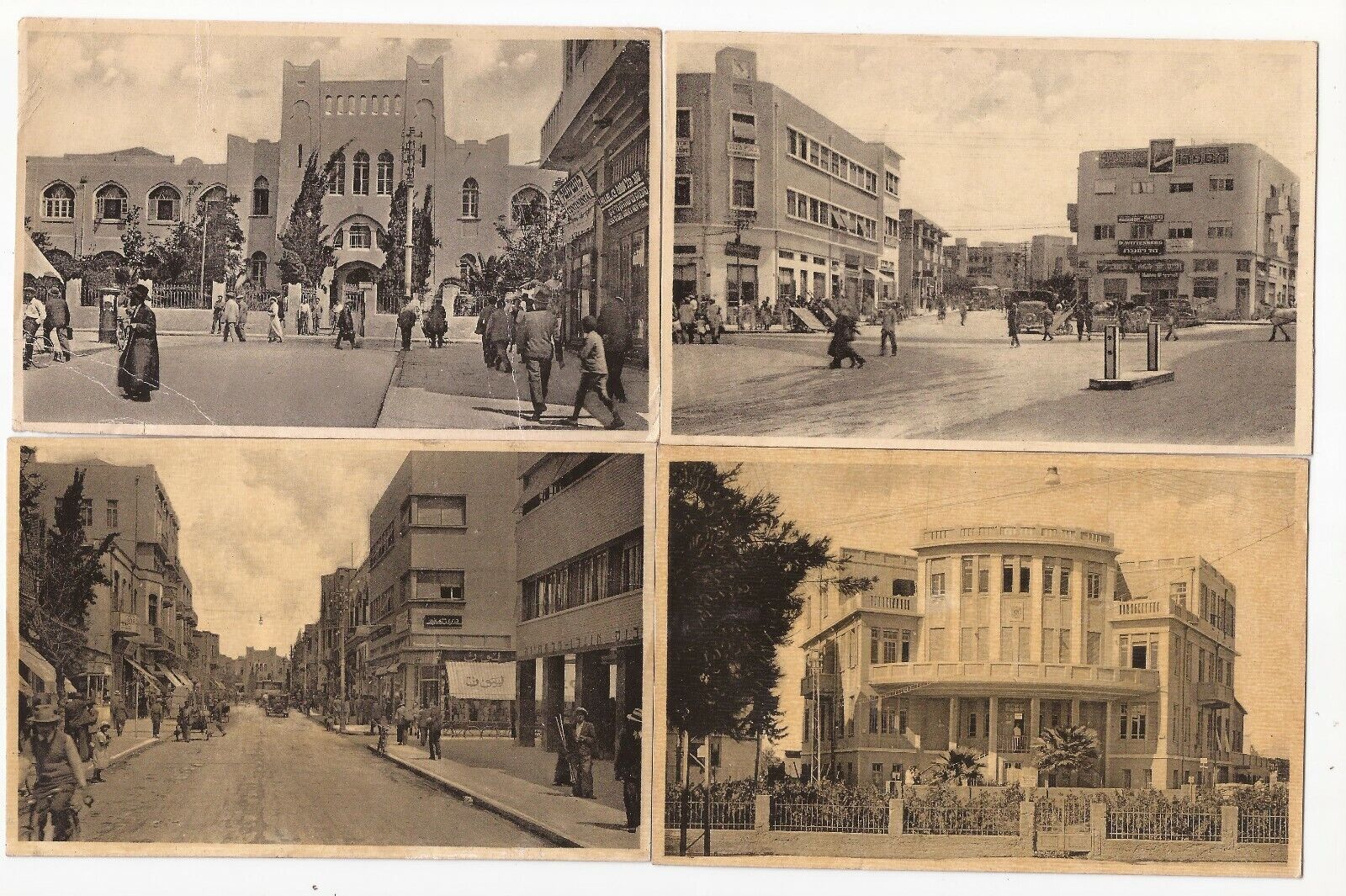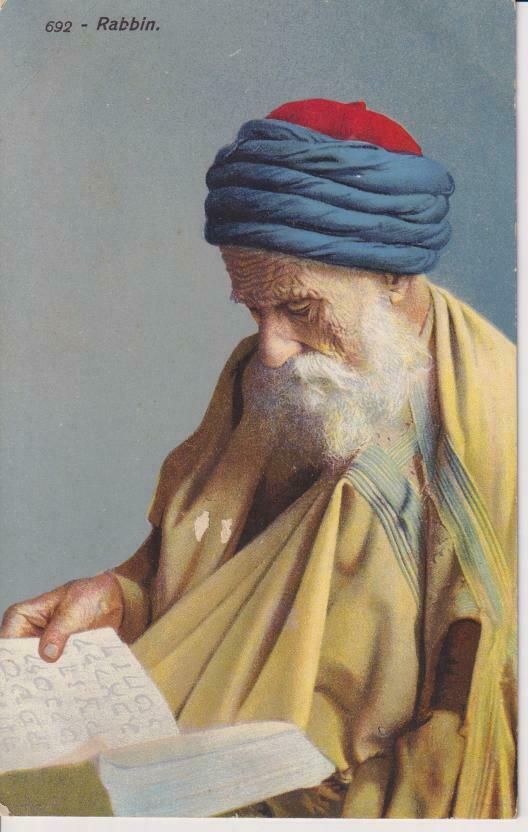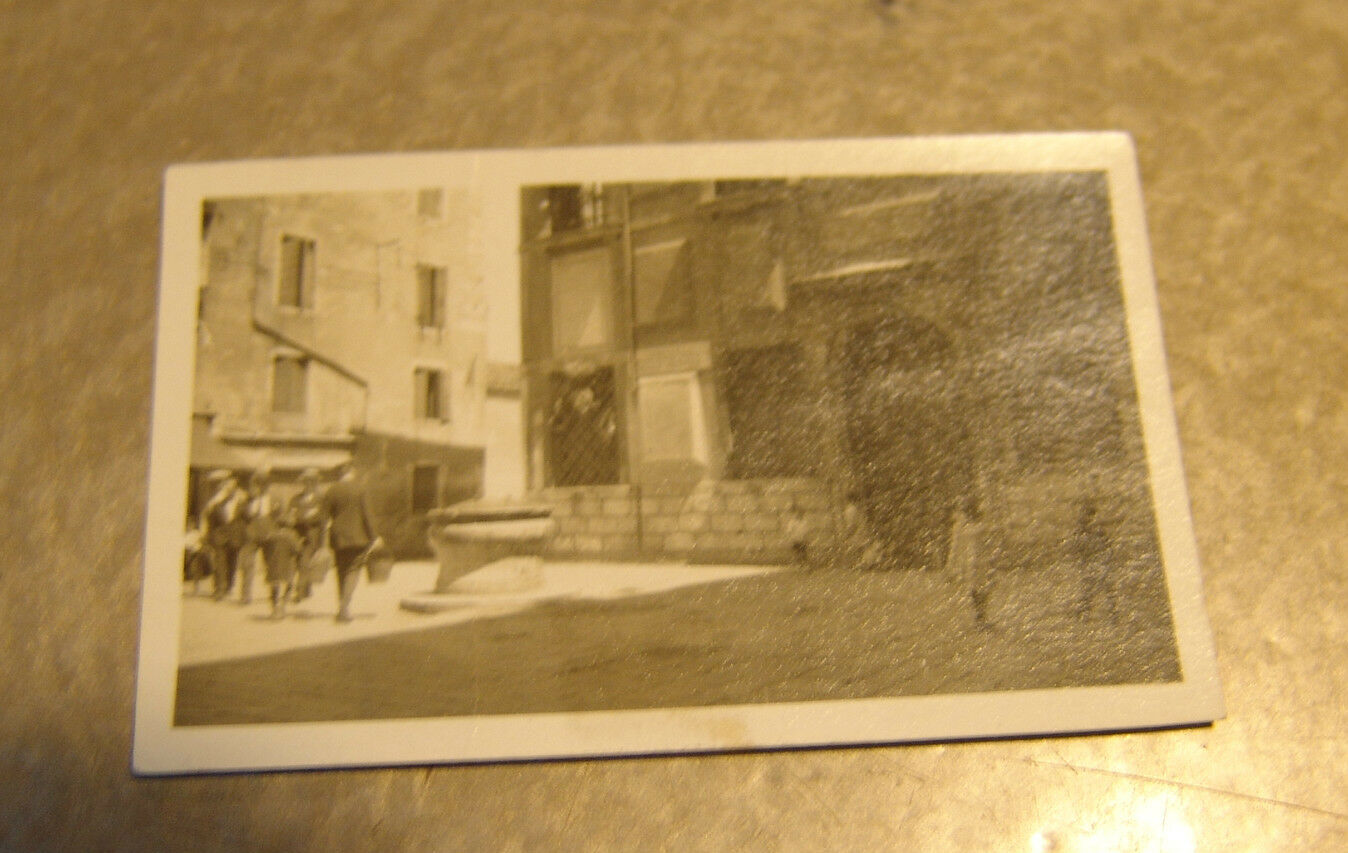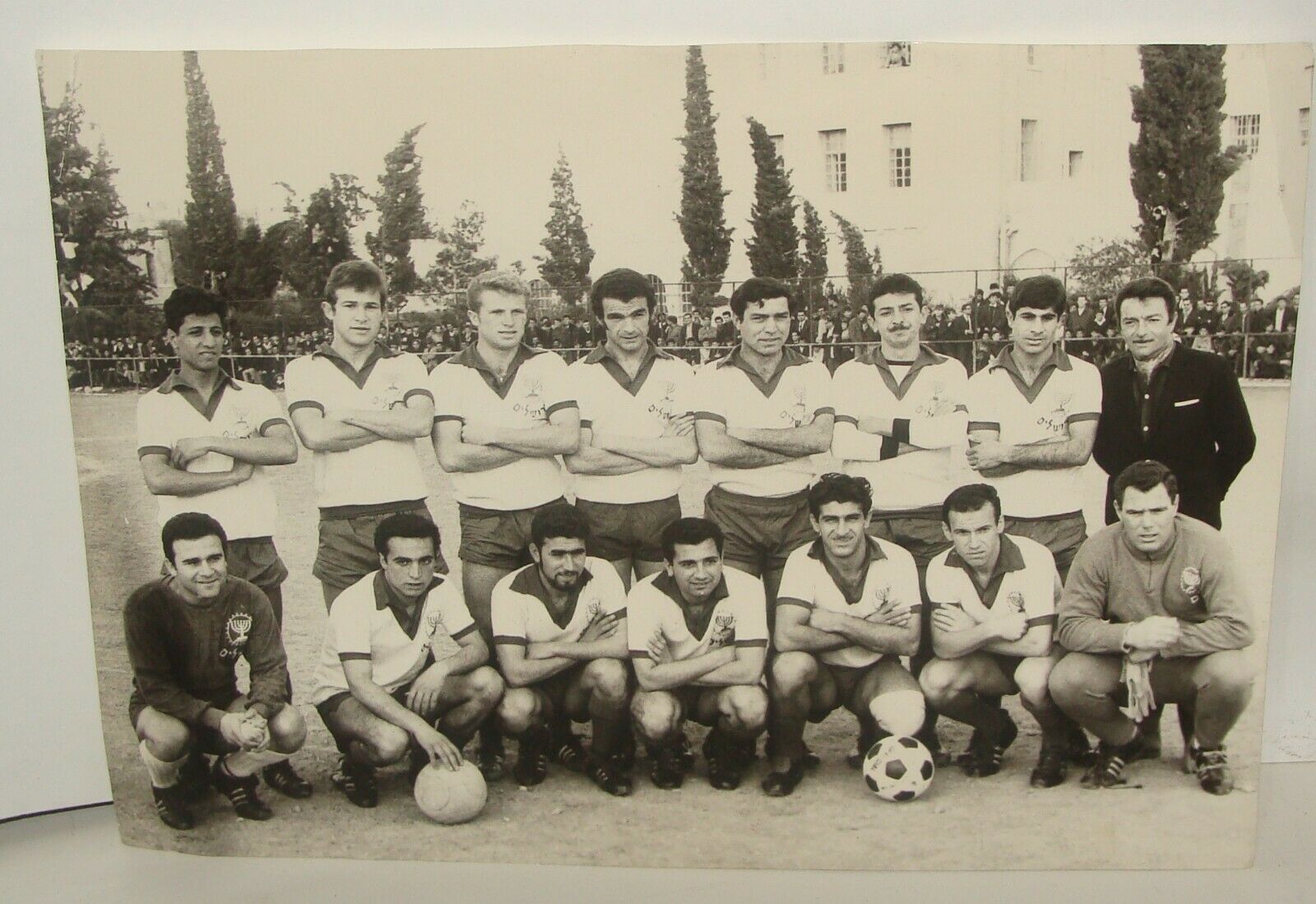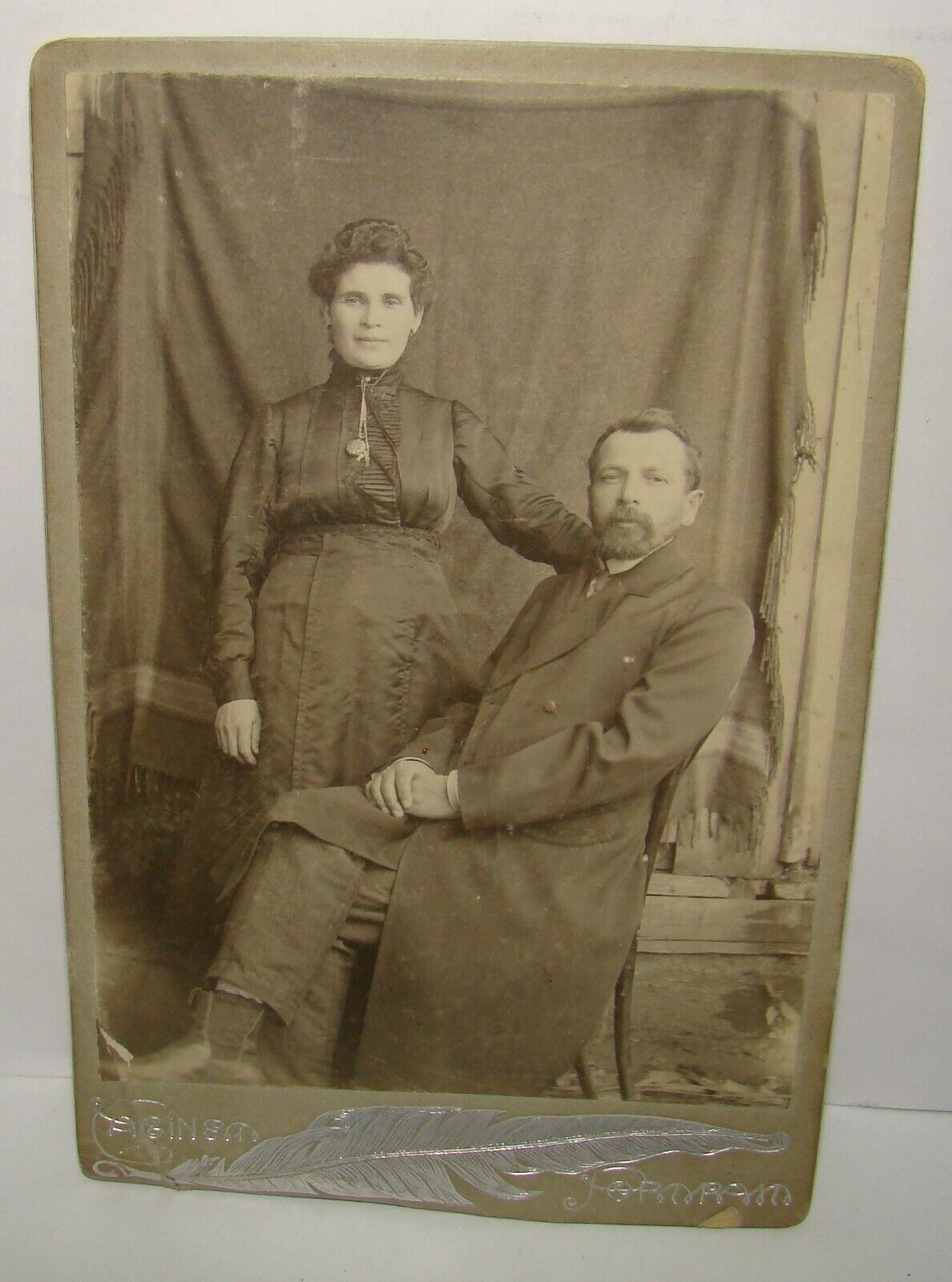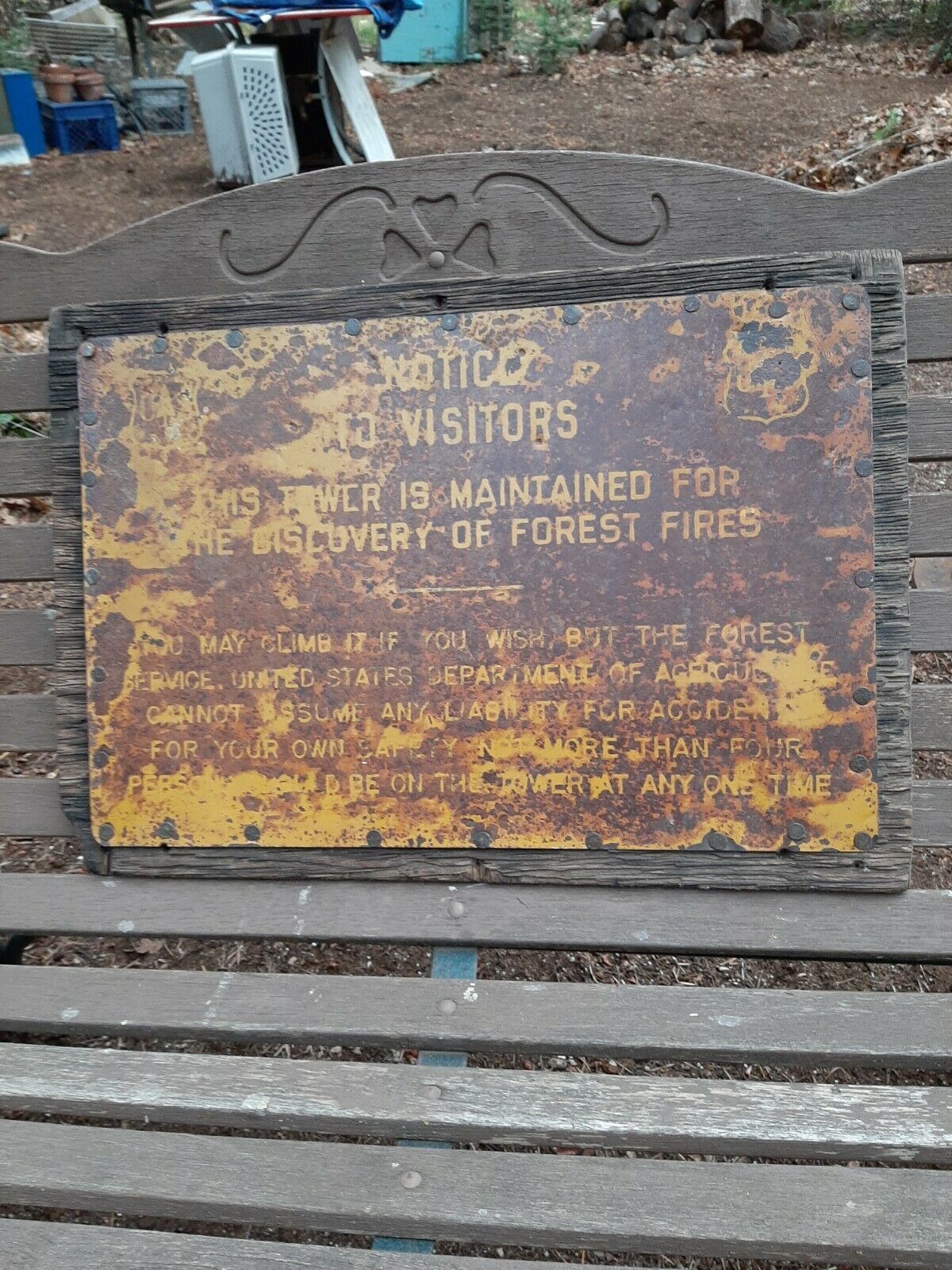-40%
DR MAX NORDAU Israel PC Postcard WORLD ZIONIST Jewish JEW WZO Herzl JUDAISM
$ 7.91
- Description
- Size Guide
Description
DR MAX NORDAU PCFREE SHIPPING with delivery confirmation on all domestic purchases!
"Dr. Max Nordau"
Postally unused.
We ship worldwide! Please see all pictures and visit
our eBay store and other eBay auctions!
Max Simon Nordau
(born
Simon Maximilian Südfeld
; July 29, 1849 – January 23, 1923), was a
Zionist
leader,
physician
,
author
, and
social critic
.
He was a co-founder of the
World Zionist Organization
together with
Theodor Herzl
, and president or vice president of several Zionist congresses.
As a social critic, he wrote a number of controversial books, including
The Conventional Lies of Our Civilisation
(1883),
Degeneration
(1892), and
Paradoxes
(1896). Although not his most popular or successful work whilst alive,
Degeneration
is the book most often remembered and cited today.
Biography
[
edit
]
Nordau was born
Simon Maximilian
, or
Simcha Südfeld
, on 29 July 1849 in
Pest
, then part of the
Austrian Empire
. His father was Gabriel Südfeld, a Hebrew poet. His family were religious
Orthodox Jews
and he attended a Jewish elementary school, then a Catholic grammar school, before receiving a medical degree from the
University of Budapest
in 1872. He then traveled for six years, visiting the principal countries of
Europe
. He changed his name before going to Berlin in 1873. In 1878, he began the practice of medicine in Budapest. In 1880 he went to
Paris
.
[
1
]
He worked in
Paris
as a correspondent for
Die
Neue Freie Presse
, and it was in Paris that he spent most of his life.
Before entering the university, he had begun his literary career at Budapest as contributor and dramatic critic for
Der Zwischenact
. Subsequently, he was an editorial writer and correspondent for several other newspapers. His newspaper writings were collected and furnished the material for his earlier books. He was a disciple of
Cesare Lombroso
.
[
1
]
Nordau was an example of a fully assimilated and acculturated European Jew. Despite being raised religious, Nordau was an agnostic.
[
2
]
He was married to a
Protestant
Christian
woman and, despite his
Hungarian
background, he felt affiliated to
German
culture, writing in an autobiographical sketch, "When I reached the age of fifteen, I left the Jewish way of life and the study of the
Torah
...
Judaism
remained a mere memory and since then I have always felt as a German and as a German only." Max Nordau was the father of painter Maxa Nordau (1897–1991).
[
3
]
Nordau's conversion to Zionism was eventually triggered by the
Dreyfus Affair
. Many Jews, amongst them
Theodor Herzl
, saw in the Dreyfus Affair evidence of the universality of
antisemitism
.
Nordau went on to play a major role in the
World Zionist Organisation
; indeed Nordau's relative fame certainly helped bring attention to the Zionist movement. He can be credited with giving the organisation a democratic character.
After the outbreak of the
World War I
, he was, being a native of Hungary, accused of German sympathies. He denied the charge, and afterward went to reside in
Madrid
. An attempt to assassinate him was made in the latter part of 1903.
[
1
]
Degeneration
(1892)
[
edit
]
Main article:
Degeneration (Max Nordau)
Nordau's major work
Entartung
(
Degeneration
) is a moralistic attack on what he believed to be
degenerate art
, as well as a polemic against the effects of a range of the rising social phenomena of the period, such as rapid urbanization and its perceived effects on the human body.
In
Réflexions sur la question gay
(translated into English as
Insult and the Making of the Gay Self
[
4
]
),
Didier Eribon
refers to a whole section in Nordau’s book targeting
Oscar Wilde
in aggressive terms: «Wilde loves immorality, sin, and crime». According to Eribon, the two volumes of
Degeneration
are centred around a description of the artistic and literary currents of an «end-of-century» that was leading society to «ruin». Nordau attacks
symbolists
,
mystics
,
Pre-Raphaelites
,
Wagnerism
,
Aestheticism
,
Decadentism
.
Huysmans
and
Zola
are also targeted by him as «
neurotics
» and «the worst kind of enemies of society», against whom the latter had «a duty to defend itself». He sustained that society was «at the highest of a serious intellectual epidemic, some kind of Black Death of degeneration and hysteria, such that it is only natural to hear a generalized, anguished questioning: ‘What is going to happen?’» Therefore, he called upon
judges
,
teachers
,
politicians
, all those who wished to protect
civilization
, to organize repression and censorship. As for
psychiatrists
, their role would be predominant in such academia of «honest people» in charge of condemning «works that speculate on
immorality
». Any artist whom this small cluster of «the most qualified men of the people» might dislike would be doomed, because in such case «both the man and his work would be annihilated».
[
5
]
Nordau’s
Degeneration
is cited by
William James
in his lecture on Neurology and Religion at the beginning of
The Varieties of Religious Experience
. James mocks the author for his «bulky book» on the grounds that he exemplifies the then-current school of medical materialism, stating that Nordau «has striven to
impugn
the value of works of genius in a wholesale way (such works of contemporary art, namely, as he himself is unable to enjoy, and they are many) by using medical arguments».
[
6
]
Zionism
[
edit
]
Dreyfus affair
[
edit
]
Nordau's conversion to Zionism is in many ways typical of the rise of Zionism amongst Western European Jewry. The
Dreyfus affair
was central to
Theodor Herzl
's conviction that Zionism was now necessary. Herzl's views were formed during his time in France where he recognised the universality of antisemitism; the Dreyfus Affair cemented his belief in the failure of assimilation. Nordau also witnessed the Paris mob outside the École Militaire crying "à morts les juifs!".
His role of friend and advisor to Herzl, who was working as the correspondent for the Viennese
Neue Freie Presse
, began here in Paris. This trial went beyond a miscarriage of justice and in Herzl's words "contained the wish of the overwhelming majority in France, to damn a Jew, and in this one Jew, all Jews." Whether or not the
antisemitism
manifested in France during the
Dreyfus Affair
was indicative of the majority of the French or simply a very vocal minority is open to debate. However the very fact that such sentiment had manifested itself in
France
was particularly significant. This was the country often seen as the model of the modern
enlightened
age, that had given Europe the Great Revolution and beginnings of
Jewish Emancipation
.
Failure of emancipation
[
edit
]
Nordau's work as a critic of european civilisation and where it was heading certainly contributed to his eventual role in Zionism. One of the central tenets of Nordau's beliefs was evolution, in all things, and he concluded that emancipation was not born out of evolution. French rationalism of the 18th century, based on pure logic, demanded that all men be treated equally. Nordau perceived Jewish Emancipation the result of 'a regular equation: Every man is born with certain rights; the Jews are human beings, consequently the Jews are born to own the rights of man.' This Emancipation was written in the statute books of Europe, but contrasted with popular social consciousness. It was this which explained the apparent contradiction of equality before the law. Yet the existence of antisemitism, and in particular 'racial' antisemitism, was no longer based on old religious bigotry. Nordau cited England as an exception to this continental antisemitism that proved the rule. "In England, Emancipation is a truth…It had already been completed in the heart before legislation expressly confirmed it." Only if Emancipation came from changes within society, as opposed to abstract ideas imposed upon society, could it be a reality. This rejection of the accepted idea of Emancipation was not based entirely on the Dreyfus Affair. It had manifested itself much earlier in
Die Konventionellen Lügen der Kulturmenschheit
reviling 'degenerate' and 'lunatic' antisemitism in
Die Entartung.
Muscular Judaism
[
edit
]
Further information:
Muscular Judaism
Nordau also, at the 1898 Zionist Congress, coined the term "
muscular Judaism
" (
muskel-Judenthum
) as a descriptor of a Jewish culture and religion which directed its adherents to reach for certain moral and corporeal ideals which, through discipline, agility and strength, would result in a stronger, more physically assured Jew who would outshine the long-held stereotype of the weak, intellectually sustained Jew. He would further explore the concept of the "muscle Jew" in a 1900 article of the
Jewish Gymnastics Journal
.
[
7
]
World Zionist Congress
[
edit
]
Nordau was central to the
Zionist Congresses
which played such a vital part in shaping what Zionism would become. Herzl had favoured the idea of a Jewish newspaper and an elitist "Society of Jews" to spread the ideas of Zionism. It was Nordau, convinced that Zionism had to at least appear democratic, despite the impossibility of representing all Jewish groups, who persuaded Herzl of the need for an assembly. This appearance of democracy certainly helped counter accusations that the "Zionists represented no one but themselves." There would be eleven such Congresses in all. The first, which Nordau organised, was in Basle, 29–31 August 1897. His fame as an intellectual helped draw attention to the project. Indeed the fact that Max Nordau, the trenchant essayist and journalist, was a Jew came as a revelation for many. Herzl obviously took centre stage, making the first speech at the Congress; Nordau followed him with an assessment of the Jewish condition in Europe. Nordau used statistics to paint a portrait of the dire straits of Eastern Jewry and also expressed his belief in the destiny of Jewish people as a democratic nation state, free of what he saw as the constraints of Emancipation.
Nordau's speeches to the
World Zionist Congress
reexamined the Jewish people, in particular stereotypes of the Jews. He fought against the tradition of seeing the Jews as merchants or business people, arguing that most modern financial innovations such as insurance had been invented by gentiles. He saw the Jewish people as having a unique gift for politics, a calling which they were unable to fulfil without their own nation-state. Whereas Herzl favoured the idea of an elite forming policy, Nordau insisted the Congress have a democratic nature of some sort, calling for votes on key topics. Nordau was also a staunch eugenicist.
[
8
]
As the 20th century progressed, Nordau seemed increasingly irrelevant as a cultural critic. The rise of
Modernism
, the popularity of very different thinkers such as
Friedrich Nietzsche
, and the huge technological changes and the devastation of the First World War, changed European society enormously. Even within the Zionist movement, other strains of thought were growing in popularity—influenced by Nietzsche,
Socialism
and other ideas. Nordau, in comparison, seemed very much a creature of the late 19th Century.
Nordau died in
Paris, France
in 1923. In 1926 his remains were moved to
Tel Aviv
's
Trumpeldor Cemetery
. A major Tel Aviv street was named "
Nordau Boulevard
"
Memorial
[
edit
]
He is currently the namesake of Kansas City Council's
BBYO
chapter Nordaunian AZA #22.
[
9
]
_______________________________________________________________
Why Buy From Chestnut Hill Books?
Chestnut Hill Books has a perfect 100% feedback rating dating over 13 years and spanning 18,000+ transactions, with customers in all 50 states and over 85 countries on 6 continents. Our detailed seller ratings (item as described, communication, shipping time and shipping and handling charges) are among the best on eBay. All domestic purchases come with free shipping and complimentary delivery confirmation, trackable through
the United States Post Office.
Our items have low starting prices well below their actual value, and reserve prices are rarely employed. Thank you for looking at our items - please browse our other auctions this week!
Payment:
Payment is due within 7 days of the auction's end date. Contact us
for special payment requests/options. If payment cannot be produced within the 7 day period, please send a message immediately indicating when payment should be expected, otherwise an unpaid item dispute will be filed with eBay.
Where Do We Ship?
Chestnut Hill Books ships to every country in the world at reasonable rates as suggested by the United States Postal Service.
Please contact us for a specific international shipping quote before bidding should you have any questions.
Shipping Terms:
Our auctions end on Sunday evenings; if payment is made immediately, your item will usually be mailed within 24 hours of payment receipt.
All items are securely packed to ensure safe shipping. Postcards are mailed between sturdy cardboard. All domestic shipments come with complimentary delivery confirmation, trackable through
the USPS
. Auction winners will receive an e-mail from PayPal with tracking information and related links; please refer to this e-mail before contacting us with questions on the status of your package, as we will have as much delivery information as you. Zero profit is made on international shipping & handling charges; domestic shipping is free.
Return Policy:
We strive to describe each item completely and accurately. However, if you feel an item was not described correctly, the item can be returned at our expense within 30 days of receipt for a refund of your original payment. It is requested that you contact us immediately
should you have any question about the condition or representation of your item.
Who Are We?
Chestnut Hill Books is a family-owned antiques business based out of the SouthCoast, Massachusetts. We collect historical items related to New Bedford, Massachusetts and the surrounding area (Dartmouth, Fairhaven, Westport etc), Boston College (tickets, programs, pennants, postcards, scrapbooks, pinbacks, sports & non-sports etc), Massachusetts political buttons & memorabilia and Mount Monadnock in Jaffrey, New Hampshire. Please contact us if you have any collectibles in those categories.
Other:
Please do not hesitate to contact us with any other questions/comments. We normally respond to all inquiries in a timely manner. Don't forget to check our weekly auctions, with new items posted on most Sunday evenings. Also, please do not forget to leave positive feedback upon item receipt! Thank you for looking at our auctions!
_______________________________________________________________
